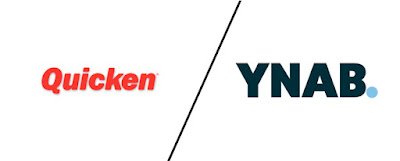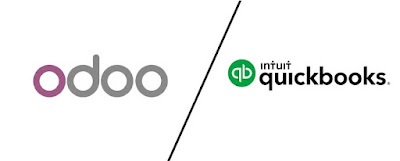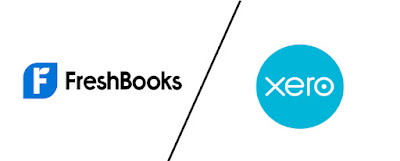Are you on the hunt for the perfect accounting software to streamline your business's financial management? Look no further! In this blog post, we'll be diving into a head-to-head comparison of two popular choices: QuickBooks Online vs Enterprise. These powerful tools offer different features and capabilities, so it's essential to understand their differences before making a decision. Whether you're a small business owner or an enterprise-level organization, we've got you covered. So grab your calculator and let's crunch some numbers to determine which option is best for your unique needs!
Compare QuickBooks online vs enterprise
QuickBooks Online and QuickBooks Enterprise are both reputable accounting software solutions offered by Intuit. While they share the same parent company, there are some key differences between these two options.
QuickBooks Online is a cloud-based platform accessible from anywhere with an internet connection. It offers features like invoicing, expense tracking, and bank reconciliation. This makes it ideal for small businesses or those on the go who need real-time access to their financial data.
On the other hand, QuickBooks Enterprise is a more robust solution designed for larger organizations with complex accounting needs. It can handle higher transaction volumes, advanced inventory management, and has industry-specific versions available. With its extensive reporting capabilities and scalability, it's a great choice for growing businesses that require additional functionality.
Another significant difference lies in pricing structures. QuickBooks Online operates on a monthly subscription model based on different tiers of service offerings. In contrast, QuickBooks Enterprise follows an annual subscription plan tailored to your specific requirements.
When comparing QuickBooks Online vs Enterprise, it comes down to your business size and unique needs. Consider factors such as scalability requirements, number of users accessing the system simultaneously, desired features (such as job costing or advanced inventory management), and budget constraints before making your decision.
Difference Between Of QuickBooks Online and Enterprise
When it comes to managing your business finances, having the right software can make all the difference. Two popular options for small and medium-sized businesses are QuickBooks Online and QuickBooks Enterprise. While they both offer features that can streamline your accounting processes, there are some key differences between the two.
One of the main differences is scalability. QuickBooks Online is cloud-based, which means you can access your financial data from anywhere with an internet connection. This makes it a great option for businesses that have remote teams or multiple locations. On the other hand, QuickBooks Enterprise is designed for larger businesses with more complex accounting needs.
QuickBooks Online offers a wide range of features to help manage your finances effectively. It allows you to track income and expenses, create invoices, and generate financial reports. You can also connect your bank accounts for easy reconciliation and use their mobile app for on-the-go access.
QuickBooks Enterprise goes beyond these basic features by offering advanced inventory management capabilities, customizable reporting options, enhanced user permissions, and industry-specific tools such as contractor management or nonprofit reporting.
Another important factor to consider is pricing. QuickBooks Online operates on a subscription model with different plans available based on the size of your business and its specific needs. This makes it a flexible option that can grow with your business over time.
On the other hand, QuickBooks Enterprise has tiered pricing based on user licenses rather than company size or features needed. This means that if you have multiple users who need access to the software simultaneously or require more advanced functionality like advanced inventory tracking or customizing reports per department - this might be a better fit.
In conclusion , when choosing between QuickBooks Online vs Enterprise , it ultimately depends on factors such as company size , complexity of accounting requirements , scalability needs , price point etc . Consider carefully what each platform offers in terms of features and pricing structure before making a decision.
Choosing The Right Option For Your Business
Choosing the right accounting software for your business is crucial for its success. Quickbooks Online and QuickBooks Enterprise are both popular options, but which one is best for your specific needs? Let's take a closer look at the features and benefits of each to help you make an informed decision.
QuickBooks Online offers convenience and accessibility as it is cloud-based, meaning you can access your financial data from anywhere with an internet connection. It also allows for easy collaboration with your accountant or bookkeeper, making it ideal for small businesses that require frequent communication and real-time updates.
On the other hand, QuickBooks Enterprise boasts advanced features suitable for larger organizations with more complex accounting needs. It can handle up to 30 users simultaneously and provides robust inventory management tools along with customizable reporting options. This makes it a great choice if you have multiple departments or locations within your business.
Consider factors such as the size of your organization, the complexity of your financial processes, and any specific industry requirements when deciding between QuickBooks Online and Enterprise. Additionally, evaluate how much support you may need from Intuit's customer service team as this can vary depending on the version you choose.
Selecting the right option boils down to understanding what functionalities are essential for streamlining your accounting processes effectively. Take advantage of free trials offered by Intuit to test out both platforms before committing to a subscription.
Remember that every business has unique needs; therefore, there isn't a one-size-fits-all answer when choosing between QuickBooks Online vs Enterprise. By carefully assessing their respective features in relation to what YOUR business requires most—whether it be portability or advanced functionality—you will be able to determine which software solution aligns best with YOUR goals! So weigh these factors wisely before making a decision!
The Pros And Cons Of QuickBooks Online Vs Enterprise
The pros and cons of QuickBooks Online vs Enterprise can help you make an informed decision about which software is best for your business. Let's take a closer look at the advantages and disadvantages of each option.
QuickBooks Online offers the convenience of being accessible from anywhere with an internet connection. It allows multiple users to collaborate in real-time, making it ideal for businesses with remote teams or multiple locations. The online version also provides automatic backups and updates, ensuring that you always have the latest features without any hassle.
However, QuickBooks Online does have its downsides. Some users find that it lacks certain advanced features available in the desktop version like inventory tracking or job costing. Additionally, if your internet connection is slow or unreliable, using QuickBooks Online may be frustrating as it requires a stable internet connection to function properly.
On the other hand, QuickBooks Enterprise is known for its robust functionality and ability to handle large amounts of data. It offers advanced inventory management tools, customizable reporting options, and industry-specific features such as manufacturing or wholesale distribution. This makes it suitable for growing businesses with complex needs.
Despite its many advantages, QuickBooks Enterprise does come with some drawbacks. It is more expensive than QuickBooks Online due to its additional features and scalability options. Furthermore, unlike QuickBooks Online which includes updates as part of the subscription fee; upgrading to newer versions of Enterprise typically incurs extra costs.
Choosing between QuickBooks Online and Enterprise ultimately depends on your business requirements and budgetary constraints. Small businesses looking for accessibility and cost-effectiveness may find that QuickBooks Online meets their needs perfectly well but larger organizations requiring more advanced functionality might benefit from investing in QuickBooks Enterprise instead.
Which Software Is Best For You?
Choosing the right software for your business can be a challenging decision. Both Quickbooks Online and QuickBooks Enterprise offer a range of features and capabilities that cater to different types of businesses. To determine which software is best for you, it's important to consider factors such as the size of your business, your budget, and specific needs.
QuickBooks Online is a cloud-based solution that provides flexibility and accessibility. It allows you to access your financial data from anywhere with an internet connection, making it ideal for small businesses or those with remote teams. With its user-friendly interface and affordable pricing plans, QuickBooks Online offers basic accounting functionalities along with additional features like invoicing, expense tracking, and integration with third-party apps.
On the other hand, QuickBooks Enterprise is designed for larger businesses that require advanced inventory management and reporting capabilities. It offers industry-specific solutions tailored to sectors such as manufacturing, construction, retail, and more. With its robust features like advanced pricing controls, serial/lot number tracking, customized reporting options ,and support for multiple users simultaneously accessing the system.
Ultimately, the decision between QuickBooks Online vs Enterprise comes down to understanding your business requirements, cost considerations, and scalability needs.
If you are a small or medium-sized enterprise looking for convenience, mobility, and cost-effectiveness then QuickBooks online should be sufficient. On the other hand, larger enterprises requiring extensive inventory management or specialized industry reports may benefit from investing in QuickBooks enterprise. Be sure t do thorough research before making any final decisions and consult with your accountant or bookkeeper for their recommendation based on your specific business needs.
Also Read About: Honeybook vs QuickBooks
When it comes to managing finances and streamlining business operations, two reputable software solutions that often come into consideration are Honeybook and QuickBooks. Honeybook vs QuickBooks is a comparison that many professionals contemplate, as both platforms offer distinct features tailored to different facets of running a successful business. Honeybook stands out for its comprehensive set of tools specifically designed for creative entrepreneurs such as photographers, designers, event planners, and freelancers. It excels in client management by providing an intuitive interface where users can organize projects, send contracts and invoices seamlessly, automate workflows, track payments efficiently, and even create visually appealing proposals to impress potential clients. On the other hand, QuickBooks serves as a versatile accounting software suitable for businesses across various industries
Conclusion
After comparing QuickBooks Online and Enterprise, it is clear that both software options have their own advantages and disadvantages.
QuickBooks Online is a convenient cloud-based solution that provides easy access to your financial data from anywhere at any time. It offers scalability, affordability, and integration with various third-party apps. However, it may not be suitable for larger businesses with more complex accounting needs.
On the other hand, QuickBooks Enterprise is a robust software designed specifically for growing businesses with advanced features like advanced inventory management, customizable reporting options, and enhanced security controls. While it offers powerful functionality, it comes with a higher price tag and requires more technical expertise to implement.
When deciding between QuickBooks Online and Enterprise for your business, consider factors such as the size of your organization, the complexity of your accounting needs, budget constraints, and future growth plans.
In conclusion (without using those words), there is no one-size-fits-all answer to which software option is best for every business. You must carefully evaluate your specific requirements before making a decision. It might be helpful to consult with an experienced accountant or bookkeeper who can provide guidance based on their knowledge of your industry and unique circumstances.
Remember that regardless of whether you choose QuickBooks Online or Enterprise, the key is to select the software that aligns best with the goals and objectives of your business while also considering long-term scalability.
By choosing the right accounting solution tailored to meet your needs, you can streamline operations, take control of finances, and make informed decisions that drive success in today's competitive market.







.jpg)


